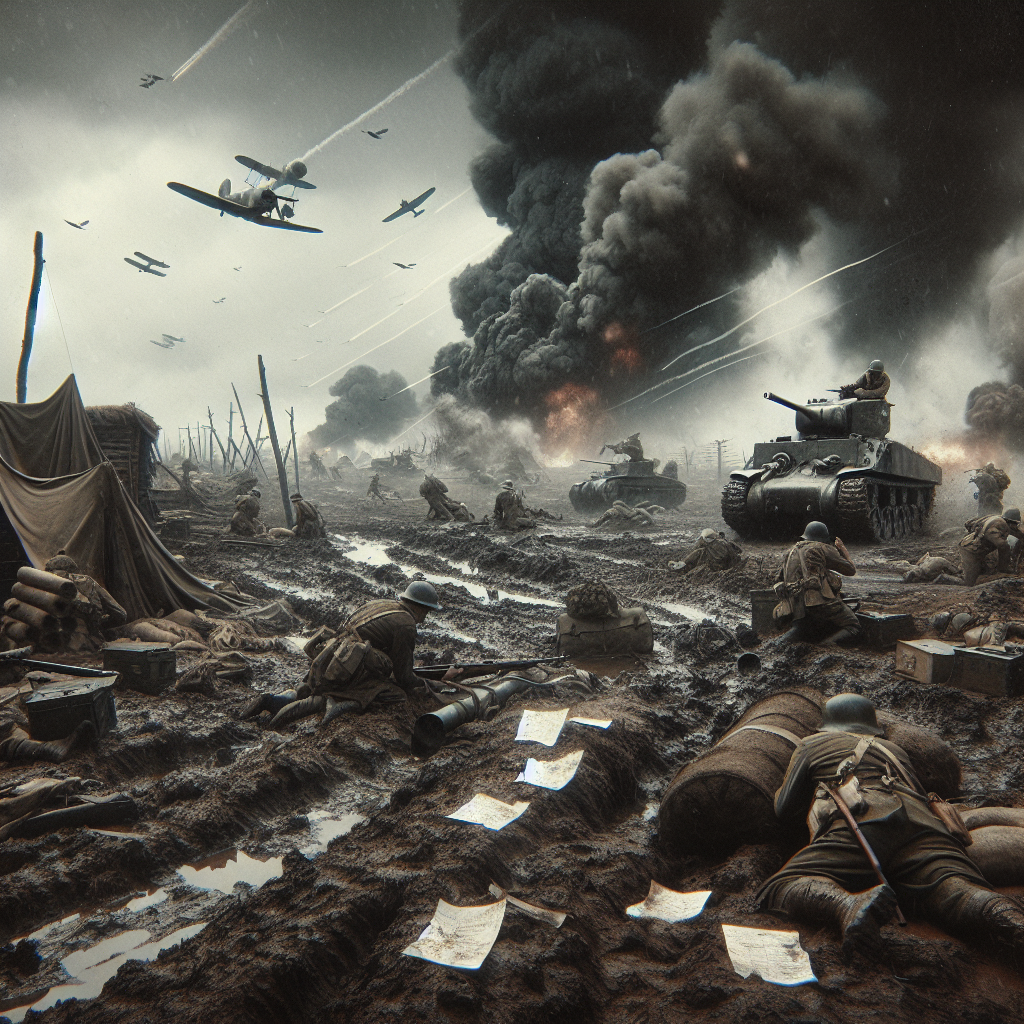Unveiling the Grim Reality: The Overlooked Tragedy of Civilian Casualties in World War II
World War II, a cataclysm that reshaped the contours of the 20th century, is often recounted through the valiant tales of soldiers and strategists, the audacious maneuvers on battlefields, and the groundbreaking innovations in warfare. Yet, beneath the veneer of military glory lies a harrowing narrative, often overshadowed by the grandiose chronicles of victory and valor—the plight of civilians, whose suffering and sacrifices were immense, yet remain underacknowledged in the annals of history. This analysis strives to shed light on the untold story of these silent victims, elucidating the stark reality of civilian casualties through the lens of starvation and the consequential role of military tactics, including the controversial use of atomic bombs.
The Silent Casualties of War
The harsh truth is that a significant proportion of those who perished in World War II were civilians, caught in the crossfire of a conflict they had little part in catalyzing. The scale of civilian suffering was not uniform, varying significantly across different theatres of war, but was universally tragic. Particularly in the Pacific, the toll on civilian life was staggering, exacerbated by a combination of military strategy and sheer necessity.
Starvation: The Unseen Weapon
The narrative becomes increasingly grim as we delve into the cause of these civilian casualties. Starvation, an indirect consequence of warfare, emerged as a silent killer. The obliteration of transportation networks and agricultural sectors led to famine conditions in many regions. As armies marched and territories were contested, the very infrastructure necessary for survival was decimated, leaving populations without the means to obtain food.
The case of Japan from 1941 to 1945 is illustrative of this dire situation. Initially, the civilian death toll was in tens of thousands but escalated dramatically to millions by 1945, a direct result of starvation. This was not an intentional strategy of war, but an inevitable outcome when the mechanisms of basic sustenance were destroyed.
https://www.youtube.com/watch?v=F4nXF_nJdWU
The Ethical Quandary of the Atomic Bombs
This brings us to a contentious chapter of World War II—the deployment of atomic bombs. Critics and historians have debated the morality and necessity of this act for decades. However, considering the grim reality of civilian starvation, there arises an argument from a different perspective. The abrupt end of the war, facilitated by the atomic bombings, may have inadvertently saved countless lives by preventing the prolonged suffering and death from starvation. It's a sobering thought that the hastened conclusion of hostilities allowed for the resumption of food distribution, a lifeline for millions on the brink of death.
This revelation does not serve to glorify the use of atomic bombs but to highlight the complex moral calculus involved in wartime decisions. It underscores the necessity of looking beyond the immediate destruction to consider the broader implications of war on civilian populations.
The Forgotten Faces of War
The plight of civilians during World War II serves as a poignant reminder of the true cost of conflict. It challenges the glorified narratives of war, urging us to acknowledge the profound human suffering that occurs beyond the battlegrounds. The stories of those who starved, not as a direct target of warfare but as victims of its far-reaching consequences, deserve to be told. Their suffering illustrates the devastating impact of war on human life, an aspect that should never be understated or forgotten.
The Need for Remembrance and Reflection
As we reflect on the history of World War II, it's crucial to remember the civilians whose lives were irrevocably changed or lost. Their ordeal compels us to rethink the nature of war and its justification, recognizing that the consequences extend far beyond the immediate theaters of conflict. The silent suffering of millions serves as a stark reminder of the need for diplomacy, understanding, and, above all, the pursuit of peace.
In remembering the civilians, we pay homage to their resilience and suffering, ensuring that their stories are not lost to history. It is a testament to the human spirit's endurance and a call to action for current and future generations to strive for a world where such tragedies are never repeated.
For further reading on the impact of World War II on civilian populations, visit:
- The United States Holocaust Memorial Museum
- The Imperial War Museum's exploration of life on the home front
In conclusion, the narrative of World War II is incomplete without acknowledging the civilians' suffering. Their stories of endurance amidst starvation and despair are a somber reminder of war's true toll. As we delve into history, let us not forget these silent victims, for in their remembrance lies the hope for a more compassionate and peaceful world.
Related News
- An In-depth Look at the Devastating Impact of Conflict: Insights from World War II
- The Atomic Paradox: A Tale of Destruction and Misconception
- The Strategic Decisions Behind the Atomic Bombings: Unveiling Hidden Motives
- The Complex Tapestry of War: Beyond Generals and Tactics
- The Convergence of Politics, Military Necessity, and the Atomic Bomb: A Deeper Dive into World War II's Endgame
